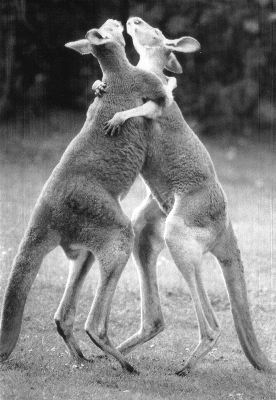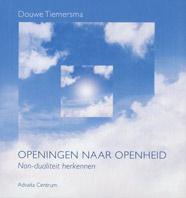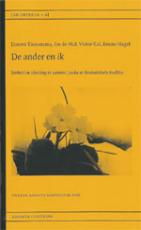Advaita Post 10-08 - Thus, you can remain open on all levels...

Volume 10 No 8 (April 29, 2009)

You confirm: it is the one life that awakens
Text
Introduction and talk in Gouda, September 3, 2008 - Inexpressible Silence (1)
While it's so quiet, it's good for you to become internally aware of the depth of that silence. Ask yourself: how deeply do I go along into that silence, how deep is my silence? If you remain clear, then you experience the layers of silence in the depths. Shall I name a few of them?
The first layer is when you as a person simply relax and there is a wonderful silence that you enjoy. "I experience silence and it's good." There is a silence it's experienced as a person.
In the next phase there is more turning within. You are internally absorbed into a spacious sphere of calm and the relaxation continues. Then it feels even better. You are still present as an I-person in the quiet space, but there is much less separation between yourself and the silence. You no longer listen to an external silence, but your own sphere has to some extent merged with the sphere of silence: you are present in the great silence.
The silence-quality and the merging can become even stronger.
If I were to ask you: "Do you have any questions?", it's very strange when the silence is deep enough. Then you notice that certainly a reaction comes, but it doesn't need to be expressed. The reaction is a becoming-aware of the silence and what it would take to break the silence up: 'In my open sphere I would have to stir everything up and assemble it in order to give a form to myself; I would have to pull up the whole speech mechanism, I would have to find language; all that is not available here and it would be an awful lot of trouble.' So there can still be a notion of 'I' somewhere, of 'Oh yes, I must answer' and 'I must have something to think about'. But, even when there is an 'I am', when a question comes 'I' have nothing to say. Why not? Because the world of 'I think' and 'I have' is not there, or is somewhere far way. There is only the silence of 'I am blank silence.'
As the silence becomes even deeper, there is absolutely no structure any longer that can give a response. Maybe somewhere in the distance there is still a knowing 'oh yes, I will be able to come out of this meditative level, but then I will really need to go to a sphere in which the I-person is re-formed, wherein I can think once again and where perhaps problems can be formulated if I dig up the language for it.' Then, in silence, there is a seed that germinates if you give in to it.
As the process of deepening continues, there is absolutely nothing that remains: there is only silence.
Maybe you can recognize the different levels. They arise in every meditation that deepens. In the deepest phase the seer is 'in himself'. You notice it in others that you see who have sunken into samadhi and have departed from the world. This deep silence can also be there with open eyes if there is great clarity. That depth can continue by means of the lucidity about your own unity with the deep silence, so that it actually remains open, that quiet sphere within which the structures of language and the mechanism of speech no longer exist, of thinking and of an I-person. Then you can remain open on all levels of being-awareness in Silence.
Now, that was it.
Thus stay internally lucid so that the process of becoming-still continues by itself. Then you recognize the different levels and you can know how deep your stillness goes. You know of the very deep silence, as you sink exclusively into the deep layers without structures of the person, of the language, of the speech. You know, as you remain aware on all levels with your eyes open, that they all exist simultaneously. Then there is an openness on all levels. You confirm that the infinite blank sphere remains primary. Everything else is surely allowed to be, but the infinite blank sphere remains in the foreground. That is your own sphere, in which you are at home.
For as long as something happens, it happens automatically. Speech may come, but then the speech no longer comes from an I-person. The phenomena can return, but then they happen by themselves. The I-person doesn't have to return. The world and living go on by themselves, as long as they continue. Ordinary sitting continues, the tone of your muscles is seemingly sufficient. Digestion continues, the heart beat continues, breathing continues, talk naturally continues, movements come and go by themselves. In the big picture, they are short-term phenomena; afterwards they're gone again.
Remain clear in the original sphere. Therein all kinds of names and forms can arise, but they don't destroy the blank sphere; they are a part of it until they disappear once again. The Silence is the origin of everything, the continuing basis of everything that appears. The realization of that means being free and leaving everything and everyone to be in freedom, in an inexpressible unity.
Er is geen tweeheid
als je ontspannen bent
in zelf-bewustzijn
is dat duidelijk.
Boeken
Douwe schreef en redigeerde gedurende zijn leven boeken. Via onze uitgeverij zijn deze nog verkrijgbaar.



